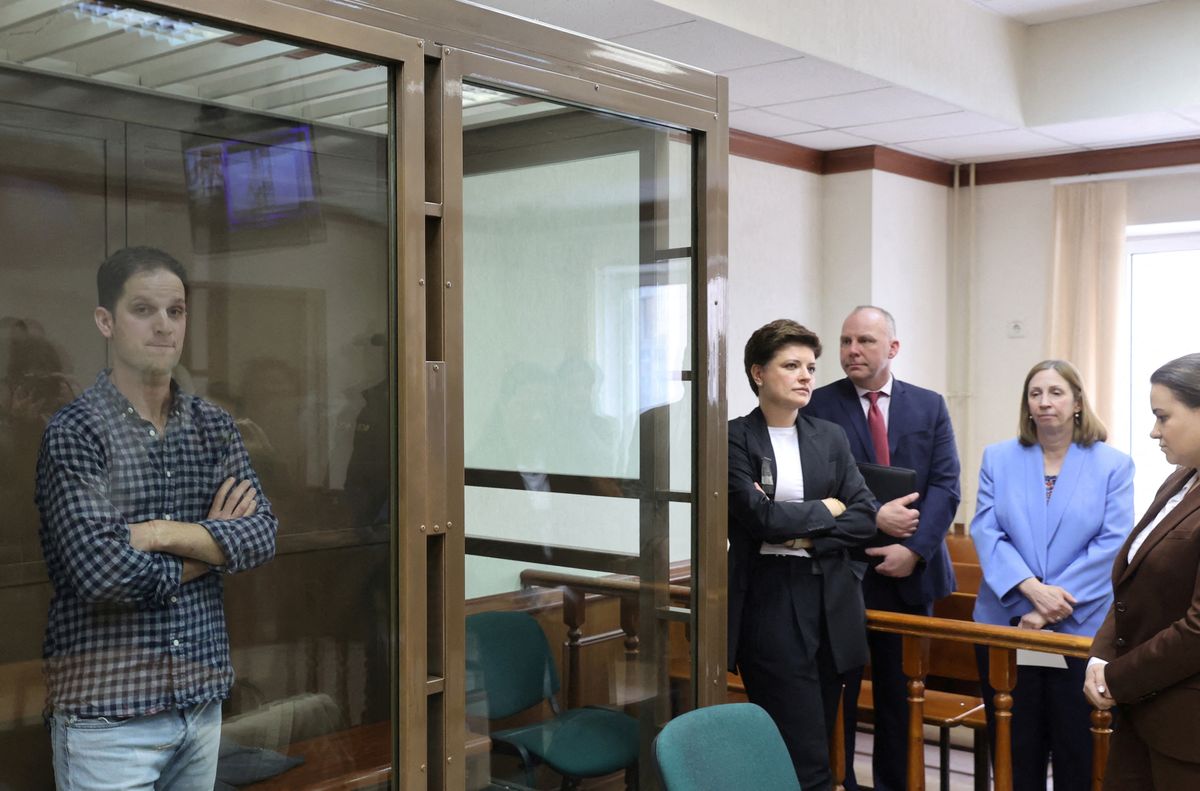World media freedoms are in danger, according to this year’s media freedom report
Every year, the advocacy group Reporters Without Borders (RSF) publishes the World Press Freedom Index.

A few minutes every morning is all you need.
Stay up to date on the world's Headlines and Human Stories. It's fun, it's factual, it's fluff-free.
The backstory: Every year, the advocacy group Reporters Without Borders (RSF) publishes the World Press Freedom Index. This report comes out for World Press Freedom Day, which started in 1993 and is recognized every May 3. The survey looks at the state of the media in 180 countries and regions, taking stock of how journalists can publish news without interference and threats to their safety. Two years ago, the World Press Freedom Index put 21 countries in the lowest ranking, meaning they were in a "very serious situation."
The development: This year, 31 countries are in the lowest ranking on the index when it comes to media freedom. The situation is "difficult" in 42, "problematic" in 55, and "good" or "satisfactory" in 52 countries. Norway took first place for the seventh year in a row for having the most press freedom. On the other hand, the Middle East is the most dangerous place in the world for journalists, according to the report. And, the Americas no longer have any green, representing "good" status, on the map.
This shift is mostly attributed to a rise in aggressiveness from autocratic governments and even from some governments considered democratic. With that, RSF says that "massive disinformation or propaganda campaigns" have affected media credibility. On top of that, the report says AI has also been "wreaking further havoc on the media world" and blurring the lines between what's real and what's not. Just think back to that AI image of the pope in a white puffer jacket that had the internet reeling for a hot minute.
In 2022, at least 67 media workers were killed, a 50% increase from 2021. Plus, digital platforms and social media have enabled extremists to push lies and harass journalists. According to UN Secretary-General Antonio Guterres, the media industry is falling, with local news outlets closing and media consolidating "into the hands of the few," putting freedom of expression in danger.
Key comments:
“There is more red on the RSF map this year than ever before, as authoritarian leaders become increasingly bold in their attempts to silence the press,” RSF Secretary-General Christophe Deloire told the Guardian. “The international community needs to wake up to reality, and act together, decisively and fast, to reverse this dangerous trend.”
“We are witnessing worrying trends, but the big question is if these trends are a hiccup or a sign of a world going backwards,” said Guilherme Canela, the global lead on freedom of speech at Unesco. “Physical attacks, digital attacks, the economic situation and regulatory tightening: we are facing a perfect storm.”
“Truth is threatened by disinformation and hate speech seeking to blur the lines between fact and fiction, between science and conspiracy,” said UN Secretary-General Antonio Guterres in a video message for the UN commemoration of 30th anniversary of World Press Freedom Day.
“Digital platforms have given us countless new ways for us to inform and express ourselves. But they`re also providing fertile ground for those who sow disinformation and conspiracy theories. We find ourselves at a new crossroads,” said United Nations Educational, Scientific and Cultural Organization (UNESCO) Director-General, Audrey Azoulay.




Comments ()